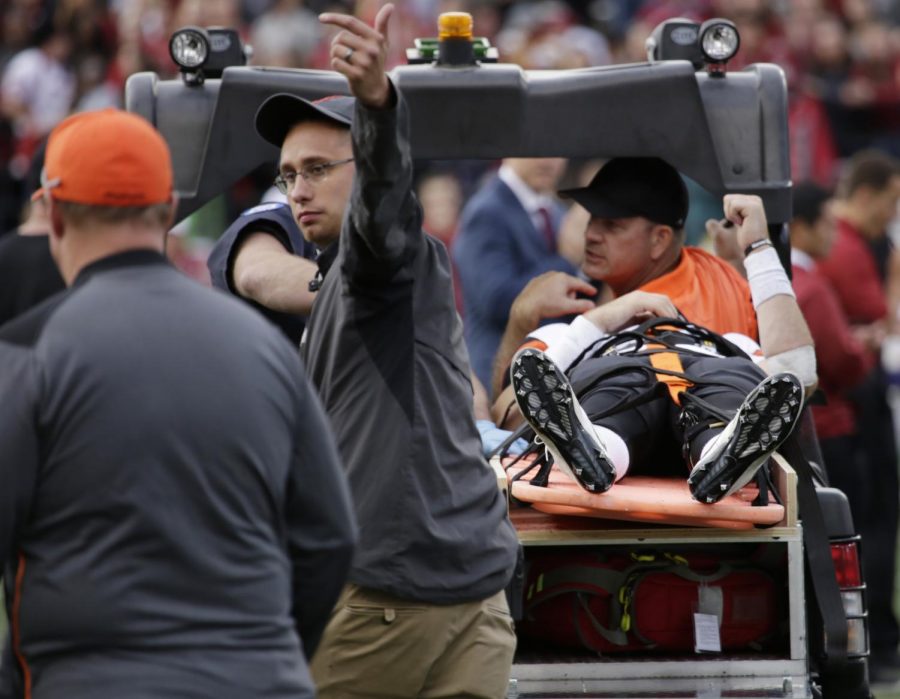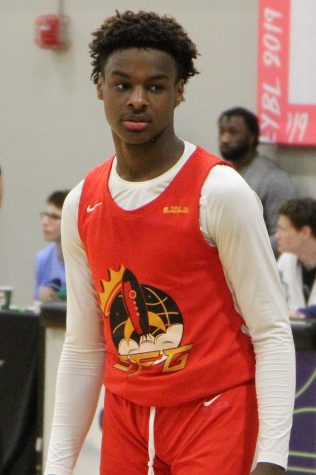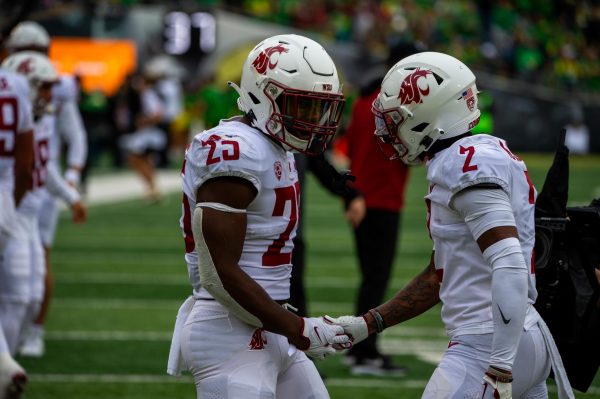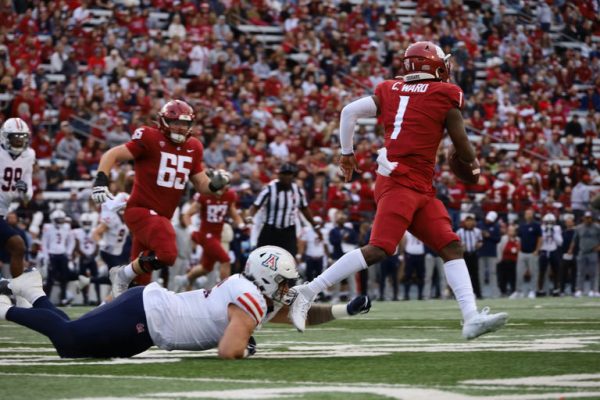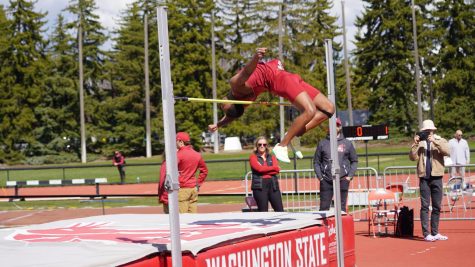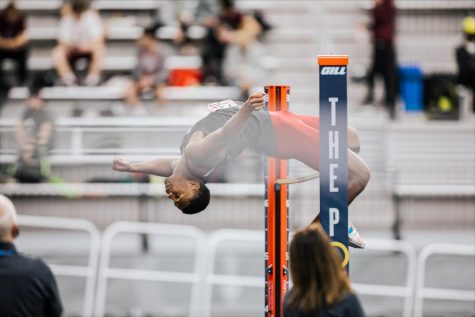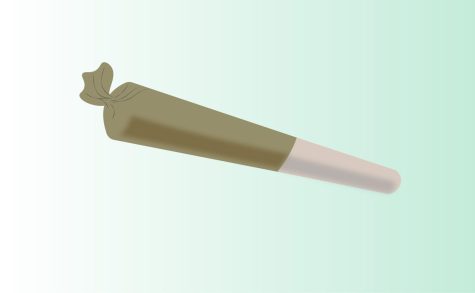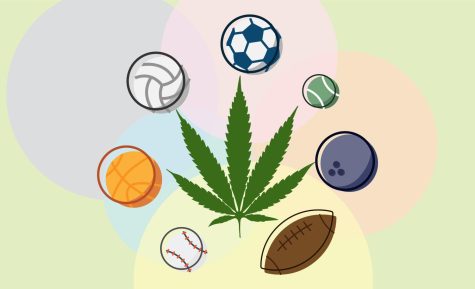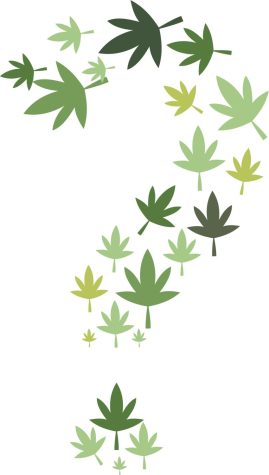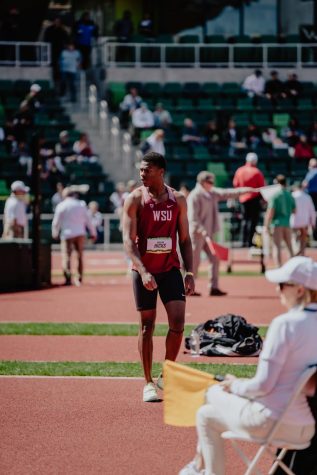Cannabis better than pills for football players
Marijuana alternative to painkillers, many of which have side effects
ABBY LINNENKOHL | Daily Evergreen File
Oregon State junior quarterback Jake Luton is taken off the field after being knocked unconciouos during a running play Sept. 16, 2017 in Martin Stadium.
January 9, 2018
We all know the dangers that come with playing the game of football, short-term and long-term. The future of the sport is growing more uncertain with the risk of head trauma and other life-altering injuries.
The question now becomes: How do we combat these injuries in football, which will never go away? Repetitive clashes are bound to take a toll on a person. Any player will tell you that it is not a pleasant feeling waking up the next day after playing a game of football.
Since injuries will always be ingrained in this game, it’s time to start recovering the right way. For years, players have dealt with injuries through painkillers and other prescription drugs. Yes, the drugs do the job and minimize pain as much as they can, but the problem is the long-term effect of the opioids and the possibility of abuse.
Dakota Kivett, a budtender at Floyd’s Cannabis Co. in Pullman, said if football players used cannabis to recover from injuries, they wouldn’t experience the negative effects of painkillers.
“I use it all the time for pain,” Kivett said. “And we have people come in to Floyds all the time to use weed to replace painkillers.”
Arthur Caplan, the director of the Division of Medical Ethics at New York University’s Langone Medical Center, explained the addictive dangers of some of these pills in a Washington Post article from March 2017.
“It sounds like an incredible amount of intervention with some pretty risky drugs, some of which, in the case of Vicodin, have a high addiction potential,” Caplan said. “It makes you think, are the physicians looking out for the health of the players, or are they just trying to keep them on the field?”
A local receptionist at Rolling Hills Midwives & Natural Family Medicine said she is in favor of cannabis use over prescription pills.
“Opioids and other prescription medicine are grossly overused and have side effects with negative consequences,” she said.
Cannabis as a form of recovery for football players is a better route than dangerous pills. Many players have supported the movement, including former NFL offensive tackle Eugene Monroe.
“Managing it with pills was slowly killing me,” Monroe said in a Washington Post article. “Now I’m able to function and be extremely efficient by figuring out how to use different formulations of cannabis.”
The resistance to cannabis stems from the belief that any form of inhaling smoke is bad for you. NFL Commissioner Roger Goodell is among those who oppose the idea.
“Listen, you’re ingesting smoke, so that’s not usually a very positive thing that people would say,” Goodell said in April. “It does have [an] addictive nature.”
Who says you have to smoke cannabis to get the feeling? There are many different forms of cannabis use. For example, cannabinoid, or CBD, oils can be taken orally. Former NFL quarterback Jake Plummer does this frequently before working out.
Other forms of cannabis are also rich in CBD. This type of cannabis doesn’t have psychoactive and mood-altering properties and gives a different high than tetrahydrocannabinol (THC).
These characteristics make CBD a perfect form of recovery for football players. I have personally taken it as well and I can notice the difference between the two. CBD oil makes you more focused and relaxed, as opposed to the laughing and hungry high of THC.
The movement seems headed in the right direction, and it’s only a matter of time before Goodell and the NFL come to their senses about the best possible recovery for their players. If things stay the way they are, the NFL could soon face multiple lawsuits from former players who feel like they weren’t treated with proper care.
Avoiding injury is not the solution. The solution lies in how we handle those injuries, so they don’t diminish players’ quality of life. We need to think about the players’ lives after football, and hopefully reduce the magnitude of degenerative brain disease and other severe injuries.
Football has a lifelong effect on the human body, and finding ways to use marjuana to deal with pain should be a priority for anyone overseeing the sport.


